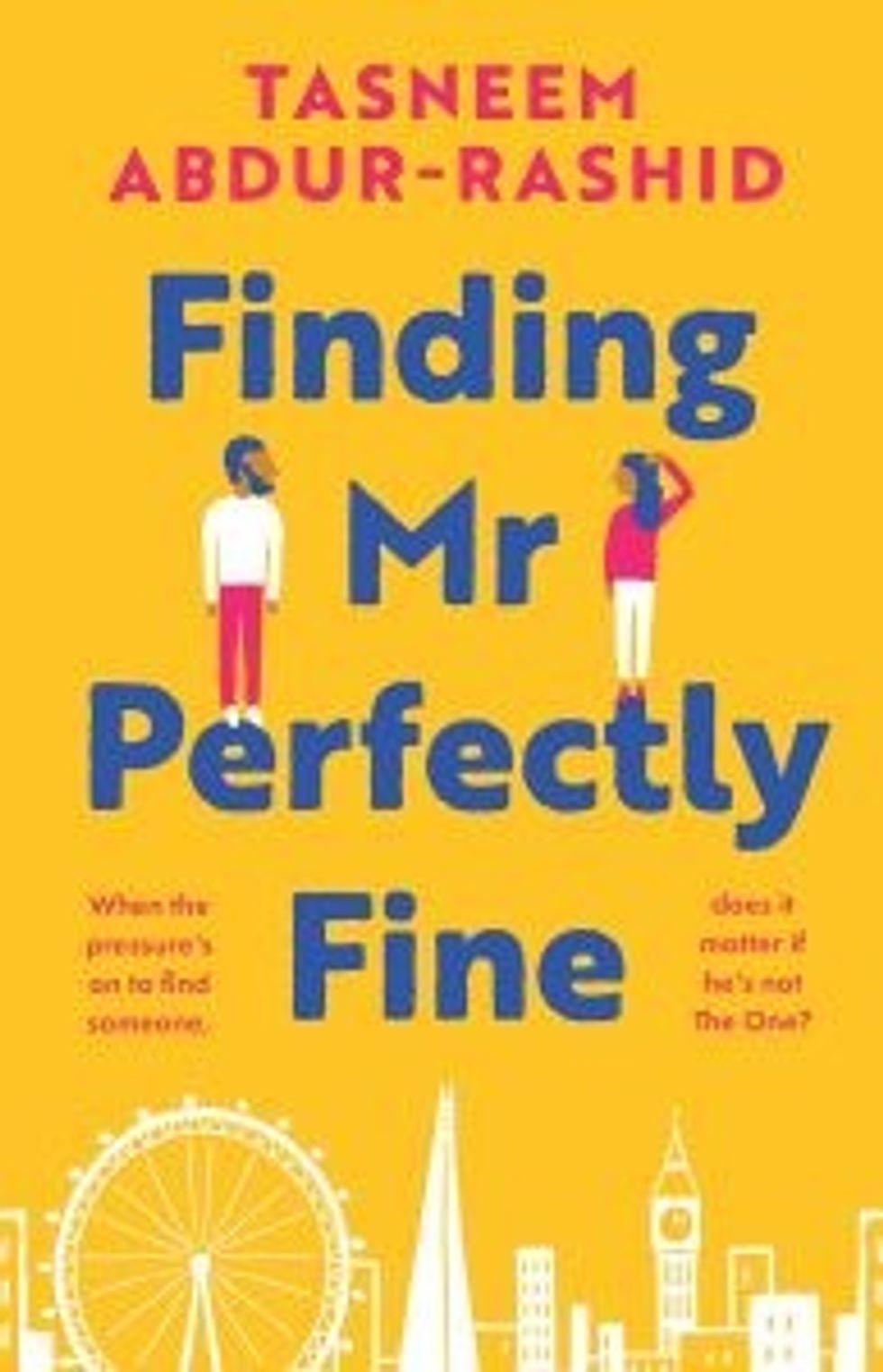British Bengali author discusses her relatable debut novel
The Covid-19 lockdown saw Tasneem Abdur-Rashid brilliantly balance working full-time, raising small children and doing a master’s part time with writing her newly published debut novel Finding Mr Perfectly Fine.
Born and raised in London, she has delivered an engaging story about a Muslim woman from London who has a year to find a husband the British Bengali way. It is part of a two-book publishing deal for the talented British Bengali author and start of an exciting literary journey.
Eastern Eye caught up with the working mother of two to discuss her relatable debut novel and how she amazingly managed to write it while being so busy during the pandemic.
What first connected you to writing?
As a child, my obsession with reading was well known, and one day, when I was around 10, my dad came home with a computer. He set it up in my little bedroom and told me that it was for me to write stories with, and thus I began my writing journey.
What led you towards your debut novel?
I started writing it while on maternity leave. My baby boy was six months old, and I had a two-and-a-half-year-old son as well. My life was an endless, thankless cycle of feeding, nappies, cooking, cleaning, and entertaining the kids. I was exhausted, sleep-deprived, and felt like I didn’t know who I was anymore. One night, while feeding the baby for the umpteenth time, I turned on my laptop and began writing and finally felt like myself again.
Tell us about the book?
Finding Mr Perfectly Fine is about a 29-year-old Bengali girl from North London called Zara, whose mum issues her with a marriage ultimatum – find a husband by the time she’s 30, or they’d be going to Bangladesh to get one from there. With only a year to go, Zara lets her parents put together a biodata (a Bengali version of a marriage ad), signs up to a Muslim marriage app, goes to events and joins a gym, all in the hopes of finding Mr Perfect.
What inspired the interesting title?
The title is a play on the idea of ‘Mr Perfect’, and is there such a thing as perfection? As the pressure intensifies and the deadline looms closer, Zara realises she might have to make do with Mr Perfectly Fine, also known as, ‘Mr okay’.
Is it based on real experiences?
A lot in the book has been inspired by real stories from my family and friends, who have been through the (often gruelling) process of trying to find a husband, the British Bengali way.
What kind of readers are you hoping will connect with this story?
I think the search for a life partner is a universal challenge and transcends culture. I’m hoping most people will enjoy the story and find something they can relate to, but I especially hope that women of colour, Muslim women, south Asian women, and Bengali women will feel more ‘seen’ when they read this book.
Do you have a favourite part of the book?
I love the chapter when Zara goes out with her female cousins for dinner and shisha, as it’s really fun, full of banter and chemistry, and we get to see a different side to Zara and Adam.
How were you able to write the book while working full time, doing a master's part time, and raising small children, during a pandemic?
At the time, I was working full-time for a national charity and my two boys were very young, five and three. I did the master’s part-time at Birkbeck, because it specialises in offering evening education. I did all the reading and homework late at night, after dinner was served, the dishes were washed, the house hoovered, and the kids were in bed. And any time I had after that, was spent writing and editing the book.
The Covid pandemic must have made it harder…
Yes. I had to spent my Saturdays doing the groceries, cleaning, and homework with the kids, and on Sunday I would do a big batch cooking that would last three to four days to save me cooking during the week. With the pandemic everything became harder. I was trying to home school the kids, while working and studying. There were times I felt like I was going crazy.
What is the secret of balancing a demanding life with writing a book?
I coped by having a really diligent routine. Everything ran like clockwork, because if we deviated from it, the seams would unravel.
What advice would you give aspiring authors with busy lives?
You must make time for writing, like you make time for all your other commitments – your book won’t write itself.
What do you enjoy reading?
Right now, I am reading a graphic novel by British Pakistani writer and artist Sabba Khan. I am basically reading a lot of books written by people of colour, particularly women of colour, regardless of the genre. The publishing industry has excluded people like us for far too long; so now I mostly read and buy books by women of colour because I want to support their careers.
What can we expect next from you?
I am currently in the middle of writing another adult book, also about a Bengali north Londoner, but a completely different story. I have also written a young adult novel. I’m planning to spend more time developing my award-winning podcast and maybe aim for my own TV show one day.
What inspires you as a writer?
I think it’s people and their stories. They’re everywhere you go, and just a snippet of a conversation, chat with a friend, or a post online, can be enough to get a story going in my mind.
Why should we pick up your new book Finding Mr Perfectly Fine?
It’s the perfect summer read. It’s fun, full of twists and turns, and as Eastern Eye readers, you’ll be able to recognise those vibrant characters from your own family. I’ve taken the classic romance story and turned it on its head, all with some added Bengali spice. You won’t be able to put it down.







 The Christmas light walks in central London that still feel festive Getty Images
The Christmas light walks in central London that still feel festive Getty Images 





